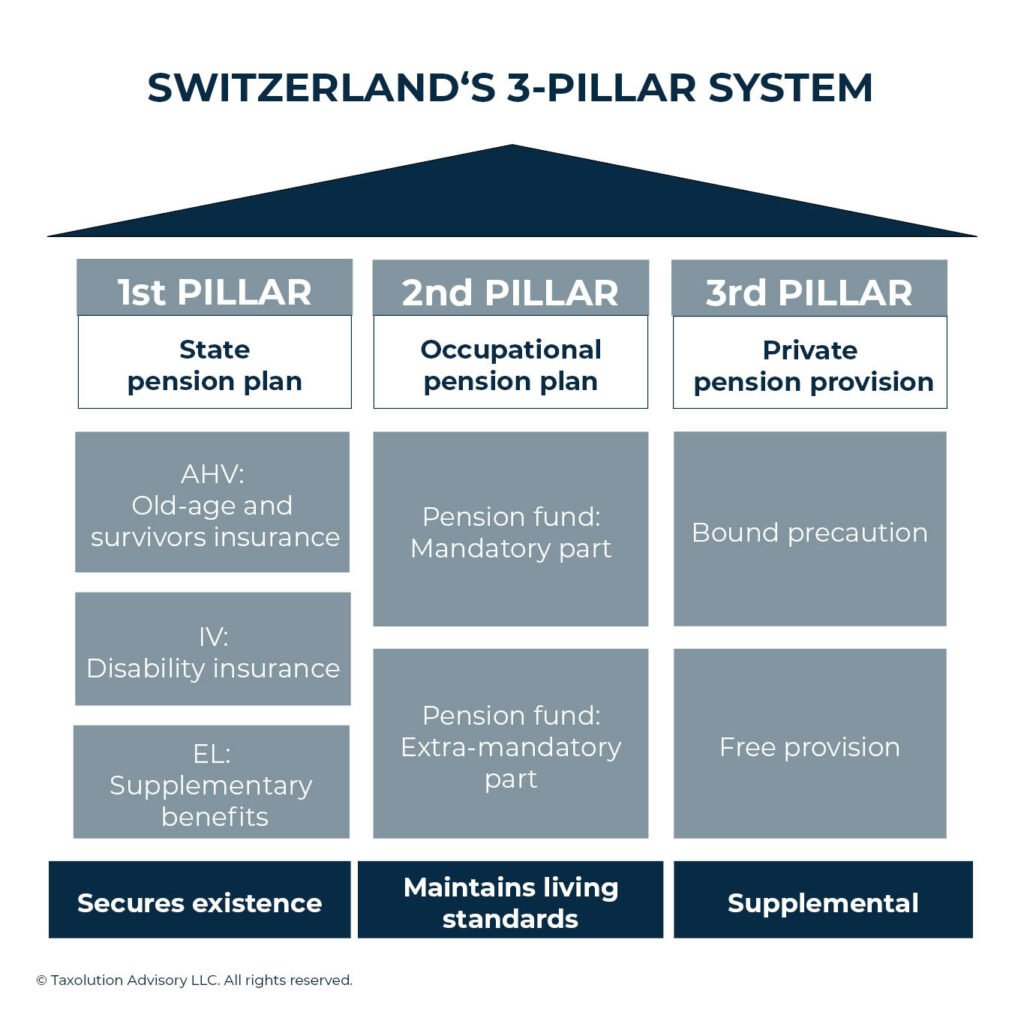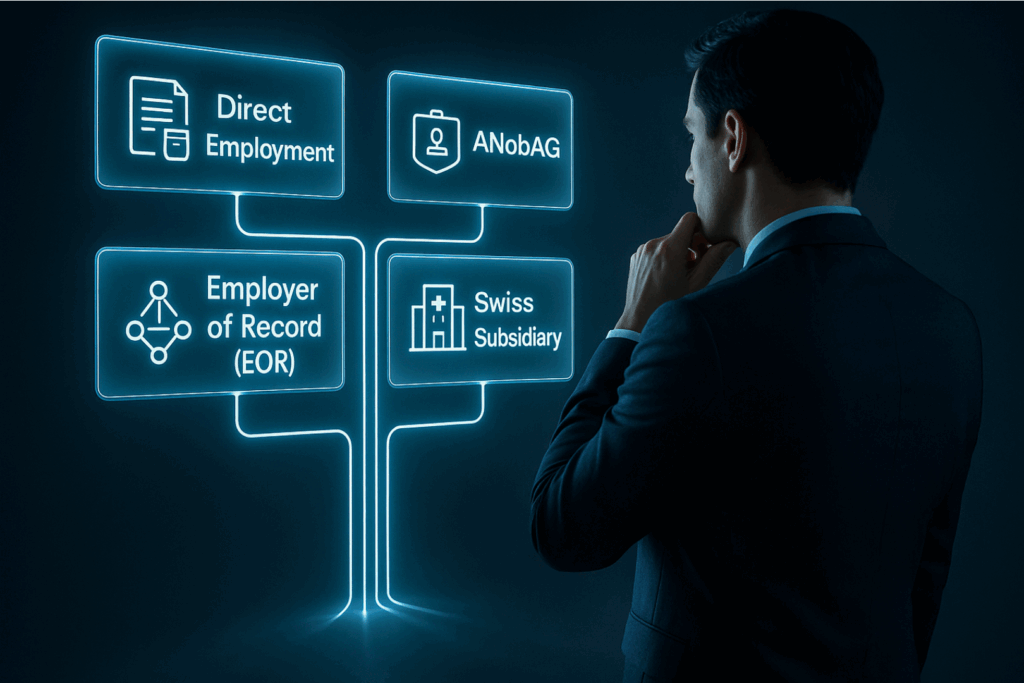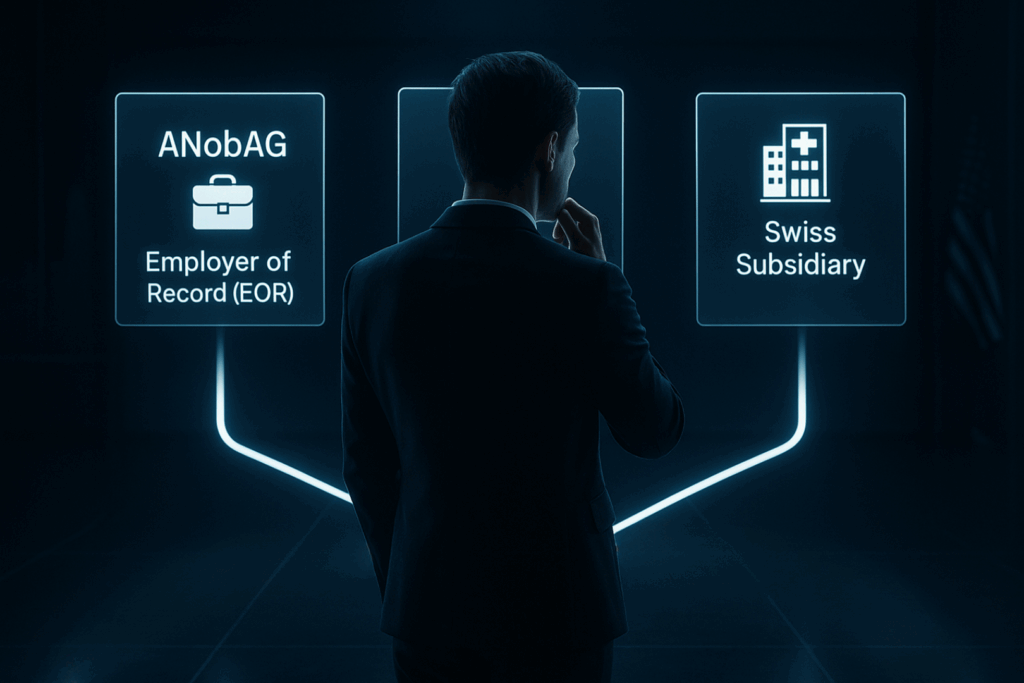What Is Tax Deductible in Switzerland?

Swiss income tax is levied on the individuals worldwide income such as (self-) employment, pension and retirement income, immovable as well as movable assets, lottery winnings and, under some instances, also capital gains. In this article we want to provide an outline of the sources of income and expenses that have an impact on income taxes.
Income Tax Rate in Switzerland
Taxable Income
- Employment income: This includes the Swiss salary as well as possible bonuses, commissions, use of a company car for private purposes, income from employee participation plans and allowances. Salary for work carried out in another country might also be taxable, depending on the applicable double taxation agreement. In case of dependent children, school fees paid by the employer are also considered as taxable income.
- Swiss taxation on employee stock options: Any exercisable or unrestricted options which are publicly listed are taxed at grant. Any restricted (vested) or non-listed options are taxed once exercised.
- Investment income: Income from securities is considered taxable income (exemption to this rule is the so called “private capital gain”). Furthermore, investment income that originates from Swiss securities and Swiss bank accounts is subject to a special withholding tax of 35% (=Verrechnungssteuer). This tax will either be refunded or credited against the income tax liability once the individual files a Swiss tax return. It serves to ensure complete declaration respectively to prevent tax evasion.
- Rental income: Income from any real estate in Switzerland is subject to taxation. If the property is occupied by its holder, a theoretical rental income is assumed by the tax authorities (Eigenmietwert=deemed rental income or notional rental value). However, expenses for maintenance of real estate can be deducted. Depreciation cannot be taken into account but mortgage interests can be. Losses from rental income can be set off against other available income. Rental income arising from property abroad is only considered for tax rate progression (see: Taxation of Properties Owned Abroad). Therefore, the (deemed) rental income from such properties as well as any maintenance cost need to be declared in the Swiss tax return.
- Self-employment: The profits made are subject to tax.
Deductions From Taxable Income
To determine the taxable income, mandatory social security and pension contributions as well as other job income-related costs are deducted from the taxable income. Further deductions can be made for:
- Employment expenses such as:
– costs related to commuting (usually car or public transport)
– lump sum deduction for meals
– costs for further education and job training upto a certain limit
– lump sum deduction for various expenses as a percentage of net salary depending on canton (often 3 %; min. CHF 2’000/max. CHF 4’000). In case expenses should exceed this general deduction, they must be supported by respecting invoices
– For expats on a temporary assignment there are further special business deductions possible. These deductions are related to double housing costs, cost for moving as well as school fees for dependent children (our Article Expat Tax Benefits explains this in detail).
- Interests paid: Mortgage as well as other debt interests are tax deductible. Special conditions apply for mortgages for real estate outside of Switzerland (see: Taxation of Properties Abroad).
- Deduction for married couples: A standard deduction is possible in some cantons if both of the couples are employed. It serves to counteract the stronger progression of married couples (see: Principle of Family Taxation).
- Alimony: If an individual is obliged to pay alimony payments to a separated partner, these payments are tax deductible for the payer and is taxable income for the receiver. The same applies to payments to depended children.
- Further deductions: Other possible deductions are donations to certain charitable organisations and costs of financial support to relatives. Foreign nationals working in Switzerland may still have income on their foreign property or business, which is taxable in the other country. In order to avoid double taxation this income can be deducted from the Swiss income while still remaining taxable in the foreign country. Regarding the latter, the respective double taxation agreement must be consulted. It is also important to know that even though such income is not considered for the taxable income, it will be added to determine the applicable tax rate (exempt from tax under progression reservation).
- Capital gains of movable assets: Private capital gains are generally not subject to income taxes. The situation is treated differently once the individual is dealing with securities on a regular basis and systematically and therefore qualifies as a commercial securities dealer. (see: Tax exemption of capital gains – am I a professional investor?)
- Special tax rules might apply amongst others for gifts, inheritances, life insurance and severance payments, certain social welfare payments, capital gains on real estate and lottery/casino gains.
Social Security on Tax
Since social security contributions are usually paid in the country where the work is performed, foreigners working in Switzerland are obliged to contribute to the social security system (AHV/IV/EO, UVG, BVG) which builds the first out of the three pillars in the Swiss social security system. It includes age, accident, survivor as well as invalidity pensions. The contributions of approx. 11 % for the first pillar is covered half be the employer and half by the employee. A non-working spouse is covered with same insurance benefits as the working spouse. The only requirement is that the working spouse total annual contribution amounts put to CHF 1006.00.
For the risk of unemployment contributions to the Unemployment Insurance (ALV, AC, AD) are split as well between the employer and the employee. Furthermore, an additional solidarity tax contribution has been introduced on incomes exceeding CHF 148’200. This is also borne half by employer and half by the employee.
The compulsory occupational accident insurance is covered by the employer. The non-occupational accident insurance can be deducted fully from the monthly wage of the employee. However, health insurance is not covered by the employer. Therefore individuals moving to Switzerland are obliged by law to obtain medical insurance with a Swiss health insurer. Under certain conditions, foreign health insurance coverage can provide release of the mentioned obligation.
The occupational/company pension scheme (BVG, LPP) is referred to as Pillar 2. The occupational pension scheme is mandatory for workers in Switzerland who are subject to AHV/IV, are older than 17, and have annual wages exceeding CHF 22,050 (“Eintrittsschwelle”). The level of contributions depends on the age of the individual and level of the persons insured salary. Contributions are calculated as a percentage of the annual wage. Employers must contribute at least half of the total obligatory contribution for their employees.
Since the 2nd pillar also provides benefits in case of death and disability, an additional amount to cover these risks will be due. In case of additional volunteer contributions (“Einkäufe”) to the Pillar 2, tax deductions are possible. The potential tax benefits of such payments are highly related to timing as well status of residency and should therefore be planned carefully.
Pillar 3: The third pillar is a voluntary personal provision. Employees may as well contribute to an individual voluntary retirement account (so called Pillar 3a). For employees already contributing to Pillar 2, contributions to Pillar 3a up to CHF 6’883 (2022) and CHF 7’056 (2023) are deductible from your taxable income.
Withdrawal from pension funds are restricted until the individual reached retirement age. However, there are a few exceptions to this rule.
- Pillar 1: An individual of a country with no social security treaty with Switzerland, benefits situated in Swiss social security system can be claimed back if the individual leaves the country and also has no intention of resuming Swiss residency.
- Pillars 2 and 3a: Pension funds can be withdrawn or also assigned to a Swiss mortgage if the individuals acquires real estate for his/her main residence. Also, the funds can be claimed back if the individual leaves the country. The payments then is subject to a withholding tax at a favorable, progressive tax rate. The maximum tax rate depends on the canton where the pension fund is located, but should not exceed 13%. The maximum federal tax rate is approximately 2.3%.
Do you have further questions about taxation in Switzerland? Contact us for a non-binding quote. We will contact you promptly and discuss your individual situation.



